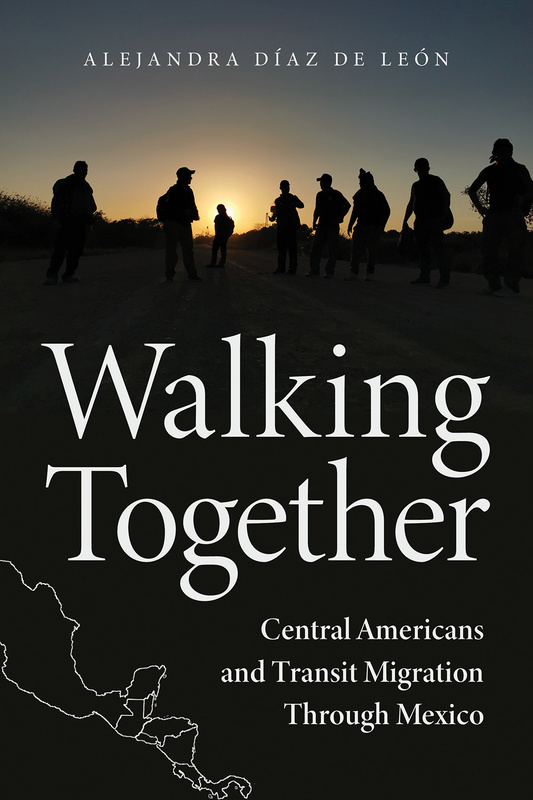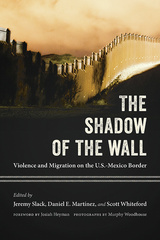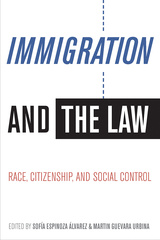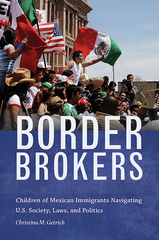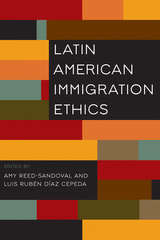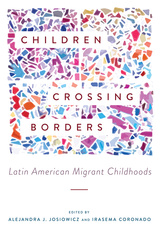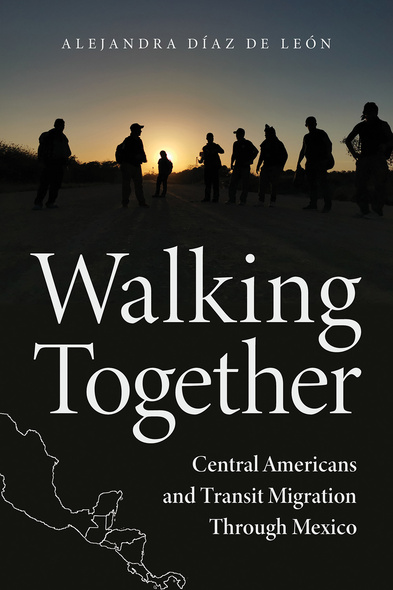
192 pages, 6 x 9
7 b&w photos, 1 map
Paperback
Release Date:25 Apr 2023
ISBN:9780816546459
Hardcover
Release Date:25 Apr 2023
ISBN:9780816546466
Walking Together
Central Americans and Transit Migration Through Mexico
The University of Arizona Press
Migration through Mexico is violent and uncertain, yet in Walking Together we see how this experience bonds some people together like family even though they may not have started that way before the journey.
Migrants in transit form several types of social networks, develop trust, and engage in acts of solidarity. The need to be recognized and grieved, compounded by the practical use of pooling information and resources, leads migrants to form small, strong groups called road families. Through the generalized sharing of information and small items such as food and blankets, migrants also form a transient community that includes everyone on the road at the same time. Sociologist Alejandra Díaz de León shows the trajectories of families that left together, showing, surprisingly, that families might not be the best social arrangement in transit.
Drawing on multisited research, this work contributes to debates on the role of social networks in clandestine migration processes and to discussions on how people create social networks and trust under violent and stressful situations. The detailed ethnographic narratives and accessible writing weave together theory with empirical observations to highlight and humanize the migrant experience.
Sitting at the intersection of border studies, immigration studies, and Latinx studies, this concise volume shows how Central American migrants in transit through Mexico survive the precarious and unpredictable road by forming different types of social ties.
Migrants in transit form several types of social networks, develop trust, and engage in acts of solidarity. The need to be recognized and grieved, compounded by the practical use of pooling information and resources, leads migrants to form small, strong groups called road families. Through the generalized sharing of information and small items such as food and blankets, migrants also form a transient community that includes everyone on the road at the same time. Sociologist Alejandra Díaz de León shows the trajectories of families that left together, showing, surprisingly, that families might not be the best social arrangement in transit.
Drawing on multisited research, this work contributes to debates on the role of social networks in clandestine migration processes and to discussions on how people create social networks and trust under violent and stressful situations. The detailed ethnographic narratives and accessible writing weave together theory with empirical observations to highlight and humanize the migrant experience.
Sitting at the intersection of border studies, immigration studies, and Latinx studies, this concise volume shows how Central American migrants in transit through Mexico survive the precarious and unpredictable road by forming different types of social ties.
Central Americans on a dangerous transit through Mexico to the United States can only make it by relying on strangers for information, emotional support, and mutual aid. Yet the predations of strangers pose lethal risks. This instant classic of migration ethnography shows how people caught in a terrible dilemma find ways to ‘walk together.’’—David Scott FitzGerald, author of Refuge Beyond Reach: How Rich Democracies Repel Asylum Seekers
Central Americans on a dangerous transit through Mexico to the United States can only make it by relying on strangers for information, emotional support, and mutual aid. Yet the predations of strangers pose lethal risks. This instant classic of migration ethnography shows how people caught in a terrible dilemma find ways to ‘walk together.’’—David Scott FitzGerald, author of Refuge Beyond Reach: How Rich Democracies Repel Asylum Seekers
Alejandra Díaz de León is an assistant professor in the Department of Sociology at the College of Mexico (Colmex) in Mexico City and a visiting fellow at the London School of Economics and Political Science’s Latin American and Caribbean Centre.

